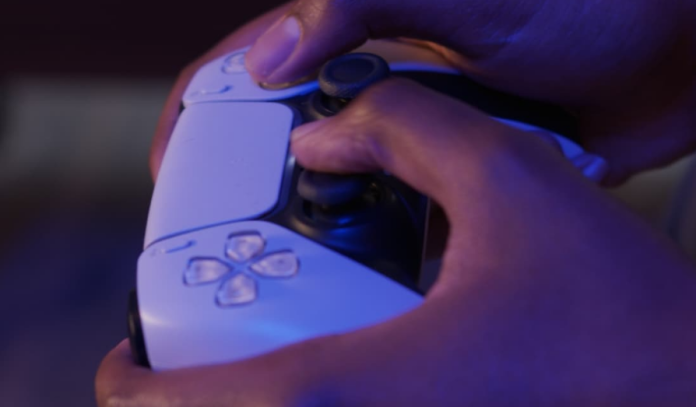Black Sparrow Media describes itself as “an award-winning full-service production company with a focus on narrative filmmaking.” Their catalogue—ranging from indie thrillers to R&B music videos—is available on YouTube and their website. Now, they’re turning their lens toward gaming with a new documentary, Gaming While Black (GWB), which explores race, representation, and access in the world of video games—from character creators to development teams.
I sat down with co-directors Jamal Page and Aaron Seaney, and producer Toni Yanez, to talk about the project and the conversations it’s sparking

Like many players, Seaney started thinking critically about representation at the character creator screen. “When I was growing up I loved the Elder Scrolls games. I always picked the Redguard” he said. “I liked how they looked and their stats.”
But only later did he learn about concepts like digital Blackface and start to question what it means for white players to adopt Black avatars, especially when design choices reflect shallow or stereotypical takes on Blackness. The Redguard’s aesthetic, for example, leans heavily on ancient Egyptian motifs. That’s a design decision that, while visually striking, risks flattening Black identity into exoticism.
Seaney’s reflection deepened when unprompted, his son created a Black character in Hogwarts Legacy. Unsure how to respond and a bit uncomfortable, Seaney turned to his co-director. “I asked Jamal if the question was offensive,” he recalled. “And I’ll never forget, he said, ‘I’d always rather have people ask and start the conversation.’”
And so, the conversation began about character creation, race, identity, and the very real ways these choices shape the gaming experience.
Representation doesn’t stop at skin tone. As gaming journalist Blessing Adeoye Jr. highlighted in his video, We Need to Fix Black Hair in Video Games, players are often faced with a sea of customizable options for white characters but only two or three for Black ones. Most often: bald, or afro. Some argue the issue is deeper than solely aesthetics. When you boot up a game and can’t even find a hairstyle that resembles yours, it’s a small but sharp reminder that the space wasn’t made with you in mind, and that lack of variety reflects broader biases. Adeoye references real-world examples to demonstrate the harm, a Black cheerleader dismissed over her hair being “too thick,” a high school wrestler forced to cut his locks before a match. These stories show how expectations around “acceptable” Black appearance aren’t limited to the digital world. When video games erase that diversity, they echo those same pressures.
Of course, customization is only one part of the equation. Who gets to make the games is another key issue.

To explore that question, the Black Sparrow team went to the 2023 Game Awards. Page recalled, “It was an incredible time for the documentary. People lit up at the concept. They told us this film was needed. That kept us moving forward.”
The data backs up their instinct. As of 2021, only about 4% of professionals in major gaming studios were Black. Yanez spoke to the deeper issue: “Our aim is to shed light on often overlooked realities of Black gamers in an industry that can unfortunately be hostile and isolating at times. We also think it is just as important to elevate the voices within the industry that have already been doing the work to create space and challenge the industry to come up with solution”
Despite the support they received from many within the industry, the team quickly learned how contentious and vitriolic conversations about race could be within the gaming community. Online, coordinated hate groups, often branded “anti-woke” or linked to platforms like Kiwi Farms, have made it their mission to undermine diversity in games. “At the Game Awards, we had the privilege of speaking with Alyssa Mercante, a former senior editor at Kotaku with bylines in Rolling Stone,” Seaney said. “She’s been the target of a massive harassment campaign over the past year, and when we posted about our conversation on Twitter, we were immediately flooded with hateful comments—people hurling slurs at Jamal, mocking my appearance, and more.”
But instead of backing down, the team doubled down. “We learned we had our own thread on Kiwi Farms. That only deepened my commitment,” Seaney said. “I want to ask these people directly: Do you actually believe women and people of color are ruining games, or have they just found a new source of income through hate speech?
Despite the pushback, Black Sparrow is hopeful.
“There are people out there putting in the work,” Page said. “We want this film to help spotlight and support them. We need to build the space so the next Jordan Peele or Ryan Coogler of gaming has a place to thrive.”
And signs of progress are already visible. Kojima’s next horror game, OD, is a collaboration with Jordan Peele. South of Midnight, a game featuring a Black woman protagonist in the Deep South, has earned strong reviews. These projects show what’s possible when new voices are given room to tell their stories.
Gaming While Black isn’t just about critique. It’s about possibility and the belief that games, like all media, are better when everyone gets to play.
If you’re interested in supporting the film, follow Black Sparrow Media for updates and future releases.
